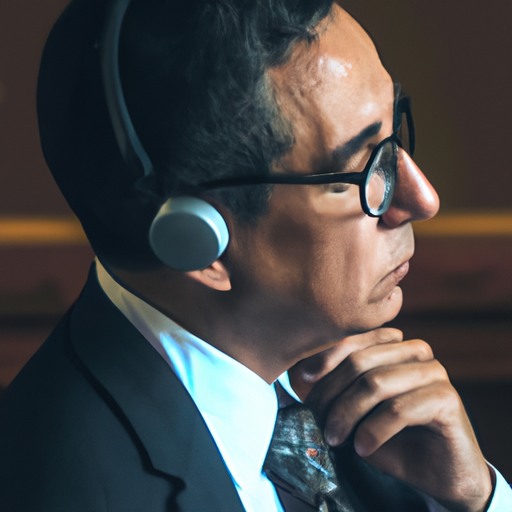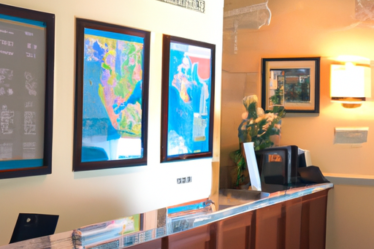
Recognizing and Addressing Age Bias in the Workplace
Ageism is a prevalent issue in many workplaces, and young leaders are not exempt from experiencing it. Being a young leader can come with its own set of challenges, and age bias is one of them. However, there are ways for young leaders to combat ageism and create a more inclusive and supportive work environment.
First and foremost, it is important for young leaders to recognize and acknowledge age bias when it occurs. This means being aware of the stereotypes and assumptions that may be placed on them due to their age. By understanding the potential biases that exist, young leaders can better navigate and address them.
One way to combat ageism is by demonstrating competence and expertise in your field. Young leaders can do this by staying up to date with industry trends, attending conferences and workshops, and seeking out opportunities for professional development. By showcasing your knowledge and skills, you can challenge any preconceived notions about your abilities based on your age.
Another effective strategy is to build strong relationships with colleagues and team members. By fostering open and honest communication, you can create a supportive and inclusive work environment. This means actively listening to others, valuing their input, and seeking their feedback. By building strong relationships, you can break down barriers and overcome age bias.
Additionally, it is important for young leaders to find mentors and role models who can provide guidance and support. Seeking out individuals who have successfully navigated similar challenges can be invaluable. These mentors can offer advice, share their experiences, and help you develop strategies for combating ageism. Having a mentor can also provide a sense of validation and reassurance, knowing that you are not alone in your experiences.
Furthermore, young leaders should not be afraid to speak up and advocate for themselves. If you feel that you are being treated unfairly due to your age, it is important to address the issue directly. This can be done by having open and honest conversations with your superiors or HR department. By expressing your concerns and providing examples of age bias, you can work towards finding a resolution and creating a more inclusive work environment.
Lastly, it is crucial for young leaders to lead by example and promote diversity and inclusion in the workplace. This means actively seeking out diverse perspectives and ideas, and ensuring that everyone’s voice is heard and valued. By creating a culture of inclusivity, you can help combat ageism and create a more supportive and collaborative work environment for all employees.
In conclusion, ageism is a real issue that young leaders may face in the workplace. However, by recognizing and addressing age bias, young leaders can take steps to combat it. By demonstrating competence, building strong relationships, seeking out mentors, advocating for themselves, and promoting diversity and inclusion, young leaders can create a more inclusive and supportive work environment. Remember, age should never be a barrier to success, and by challenging ageism, young leaders can pave the way for a more inclusive future.
Building a Strong Professional Network to Overcome Ageism

Ageism is a prevalent issue in many workplaces, and young leaders often find themselves facing this challenge. However, there are ways to combat ageism and build a strong professional network that can help overcome this obstacle. In this article, we will discuss some tips for young leaders to combat ageism in the workplace by building a strong professional network.
One of the first steps in combating ageism is to recognize the value of networking. Building a strong professional network can provide young leaders with opportunities to connect with individuals who can offer guidance, support, and mentorship. Networking allows young leaders to tap into the knowledge and experience of others, regardless of their age.
To start building a professional network, young leaders should attend industry events and conferences. These events provide an excellent opportunity to meet professionals from various backgrounds and industries. By engaging in conversations and exchanging contact information, young leaders can begin to establish connections that can help combat ageism.
Another effective way to build a professional network is through online platforms. Social media platforms like LinkedIn offer a space for professionals to connect and share their experiences. Young leaders can utilize these platforms to showcase their skills, connect with industry leaders, and join relevant groups or communities. Engaging in online discussions and sharing valuable insights can help young leaders gain visibility and credibility within their industry.
In addition to attending events and utilizing online platforms, young leaders should also consider seeking out mentorship opportunities. Mentors can provide valuable guidance and support, helping young leaders navigate the challenges they may face due to ageism. Mentors can offer advice on career development, share their experiences, and provide a fresh perspective on various situations. Young leaders should actively seek out mentors who can help them overcome ageism and achieve their professional goals.
Furthermore, young leaders should not limit their networking efforts to individuals within their age group. Building a diverse network that includes professionals of all ages can be beneficial in combating ageism. By connecting with individuals from different generations, young leaders can gain insights into different perspectives and approaches to work. This diversity can help challenge ageist stereotypes and foster a more inclusive work environment.
It is also important for young leaders to be proactive in their networking efforts. They should take the initiative to reach out to professionals they admire or want to learn from. By expressing genuine interest in their work and seeking opportunities to connect, young leaders can establish meaningful relationships that can help combat ageism.
Lastly, young leaders should remember that building a strong professional network takes time and effort. It is essential to nurture and maintain these connections by staying in touch, offering support, and being open to collaboration. Networking is a continuous process that requires ongoing engagement and investment.
In conclusion, building a strong professional network is crucial for young leaders to combat ageism in the workplace. By attending industry events, utilizing online platforms, seeking mentorship, connecting with professionals of all ages, being proactive, and nurturing relationships, young leaders can create a network that supports their growth and helps overcome ageist barriers. With a strong professional network, young leaders can thrive in their careers and contribute to a more inclusive and diverse work environment.
Developing and Showcasing Relevant Skills and Expertise
As a young leader in the workplace, it can be disheartening to face ageism. However, there are ways to combat this bias and prove your worth. One effective strategy is to develop and showcase relevant skills and expertise. By doing so, you can demonstrate your value and overcome any preconceived notions about your age.
First and foremost, it is crucial to identify the skills that are most relevant to your field or industry. Take the time to research and understand the key competencies that employers are looking for. This will allow you to focus your efforts on developing these skills and becoming an expert in your chosen area.
One way to develop your skills is through continuous learning. Seek out opportunities for professional development, such as attending workshops, conferences, or online courses. These experiences not only enhance your knowledge but also demonstrate your commitment to self-improvement. Employers appreciate individuals who are proactive in their learning and are willing to invest in their own growth.
In addition to formal learning opportunities, consider seeking out mentors or experienced professionals in your field. Their guidance and advice can be invaluable in helping you navigate the challenges of the workplace. A mentor can provide insights into the industry, offer career advice, and help you develop the skills necessary to succeed. Having a mentor also shows employers that you are proactive in seeking guidance and are committed to your professional development.
Once you have developed your skills, it is important to showcase them effectively. One way to do this is by taking on challenging projects or assignments that allow you to demonstrate your expertise. Seek out opportunities to lead a team or take on responsibilities that align with your skills. By excelling in these tasks, you can prove your abilities and gain recognition from your colleagues and superiors.
Another effective way to showcase your skills is through networking. Attend industry events, join professional organizations, and connect with others in your field. Networking not only allows you to learn from others but also provides opportunities to showcase your expertise. By engaging in conversations and sharing your knowledge, you can establish yourself as a valuable asset in your industry.
In addition to networking, consider building an online presence. Create a professional profile on platforms such as LinkedIn and regularly update it with your accomplishments and skills. Share relevant articles or insights in your field to demonstrate your expertise. Having a strong online presence can help you stand out to potential employers and colleagues.
Finally, don’t underestimate the power of a well-crafted resume and cover letter. Tailor these documents to highlight your relevant skills and experiences. Use specific examples to demonstrate how you have successfully applied your skills in previous roles. A strong resume and cover letter can make a lasting impression and help you overcome any age-related biases.
In conclusion, as a young leader, it is important to develop and showcase relevant skills and expertise to combat ageism in the workplace. By continuously learning, seeking out mentors, taking on challenging projects, networking, and building an online presence, you can prove your worth and overcome any preconceived notions about your age. Remember, your skills and abilities are what truly matter, and by showcasing them effectively, you can thrive in your career.


